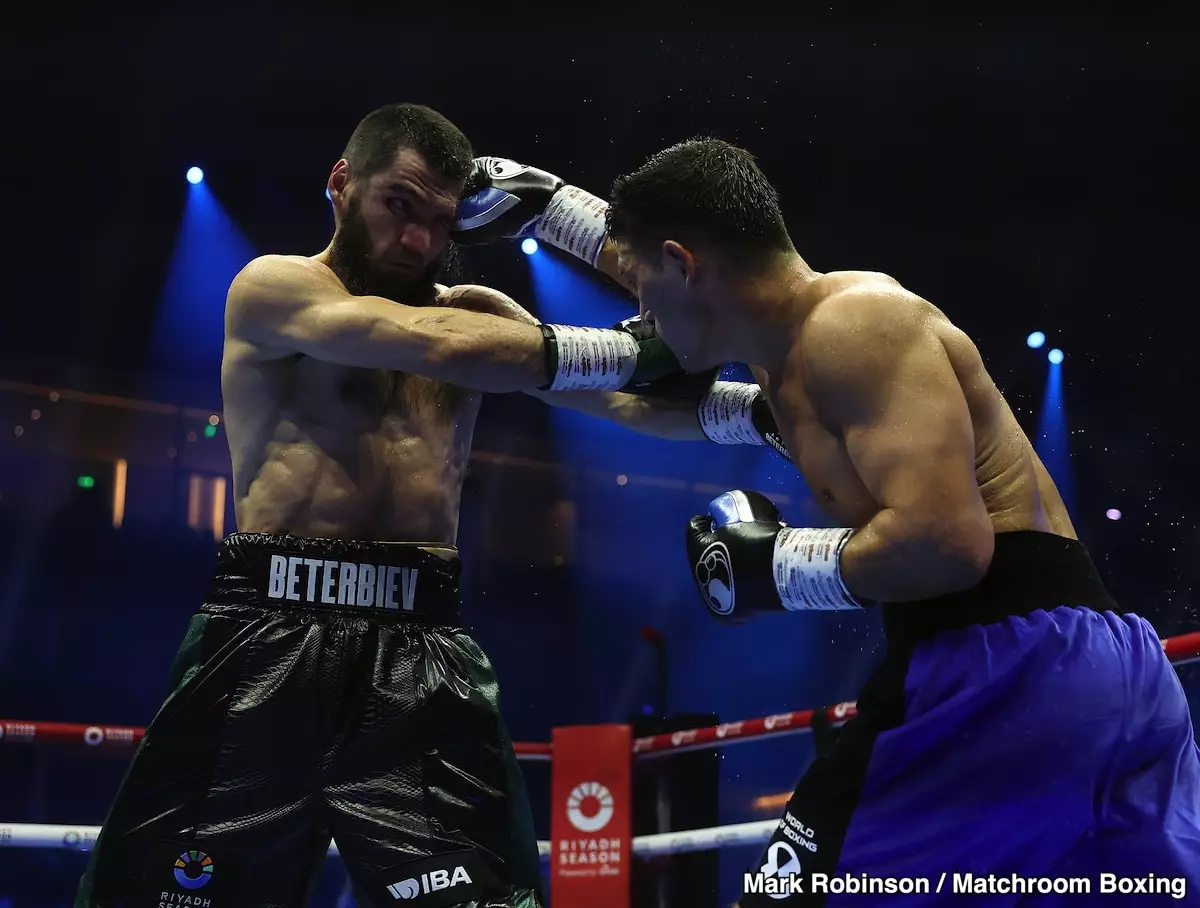On a riveting night of boxing at the Kingdom Arena in Riyadh, Saudi Arabia, Artur Beterbiev secured a hard-fought victory against Dmitry Bivol, earning the undisputed light heavyweight championship. The bout ended with a majority decision in Beterbiev’s favor, with scores reflecting varying opinions on the match’s competitiveness. Prominent boxing analyst Teddy Atlas scored the fight 115-113 for Beterbiev, asserting that the judges made the correct decision despite some controversial scorecards, including one that had the fight 116-112.
For a significant part of the fight, Bivol displayed impressive defensive techniques and tactical nous, but the turning point came during the seventh round. Although Bivol began strong, landing a flurry of shots, it only appeared to awaken Beterbiev. The Russian champion, showing remarkable resilience and experience, seized the initiative after absorbing the early onslaught. The vital body shots landed by Beterbiev in the subsequent rounds profoundly affected Bivol, visibly draining his stamina and slowing his pace. The dynamic shift showcased Beterbiev’s relentless approach and ability to capitalize on an opponent’s moment of vulnerability.
As Bivol’s energy dwindled, he resorted to surviving rather than competing, particularly in the later rounds—8 through 12. Beterbiev, recognizing this shift, dominated with a barrage of power punches. This transformation serves as a critical reminder of how mental and physical fatigue can impact a fighter’s performance. It highlights Beterbiev’s psychological advantage—his capacity to not only weather the early storm but turn the tide through sheer persistence and aggression.
While Bivol’s coach Eddie Hearn publicly criticized the judges’ decisions, claiming that Bivol was robbed, this sentiment may derive from a promotional standpoint rather than an objective assessment of the fight. Hearn’s comments might protect Bivol’s marketability as a top fighter, but they also risk overshadowing the reality of the contest. If Hearn had honestly acknowledged Bivol’s inability to cope with Beterbiev’s pressure, it could have altered the perception of Bivol as a top contender in the eyes of fans.
Atlas defended the judges’ decision, noting the caliber of Beterbiev, who exhibited tactical maturity and adaptability—traits that often define successful fighters. The disparity in experience between the two fighters became glaringly evident, particularly as the rounds progressed. This aspect of the bout calls attention to the significance of having a strategic game plan a fighter can rely on when facing adversity.
Critically, Beterbiev fought with a disciplined approach that allowed him to gauge the perfect moments to unleash his powerful strikes. Observing Bivol’s declining energy levels, Beterbiev displayed strategic patience, often choosing to conserve energy during a few rounds while still managing to fend off Bivol’s advances. The ninth round, for example, showcased Beterbiev’s adaptability as he moderated his pace, an indication of a fighter who understands the long game in championship rounds.
Moreover, many observers, including Atlas, noted that Beterbiev’s decision to attack Bivol’s body later in the fight marked a pivotal strategy shift. Early caution to save energy became an essential component of his strategy, as it allowed him to exploit Bivol’s eventual vulnerabilities. Atlas criticized Beterbiev’s initial reluctance to target the body, suggesting that an earlier commitment to this strategy might have disrupted Bivol’s rhythm and hastened the fight’s conclusion.
The Beterbiev vs. Bivol bout transcended mere scoring; it was a masterclass in the ebb and flow of boxing dynamics. Bivol’s success in the early rounds showcased his potential, but Beterbiev’s relentless pursuit and strategic mindset ultimately secured him the victory. This fight serves as a reminder for both fighters and trainers alike about the importance of adapting tactics mid-fight and understanding an opponent’s psychological and physical states.
As boxing evolves, matchups like this illustrate the critical nature of stamina, experience, and mental fortitude in the ring. Fans and analysts will undoubtedly continue to dissect this bout, extracting lessons that go beyond the scorecards and into the essence of competitive boxing itself. The respect and admiration for a fighter who can endure and adapt are what make the sport so compelling, and both Beterbiev and Bivol have contributed substantially to that narrative.

